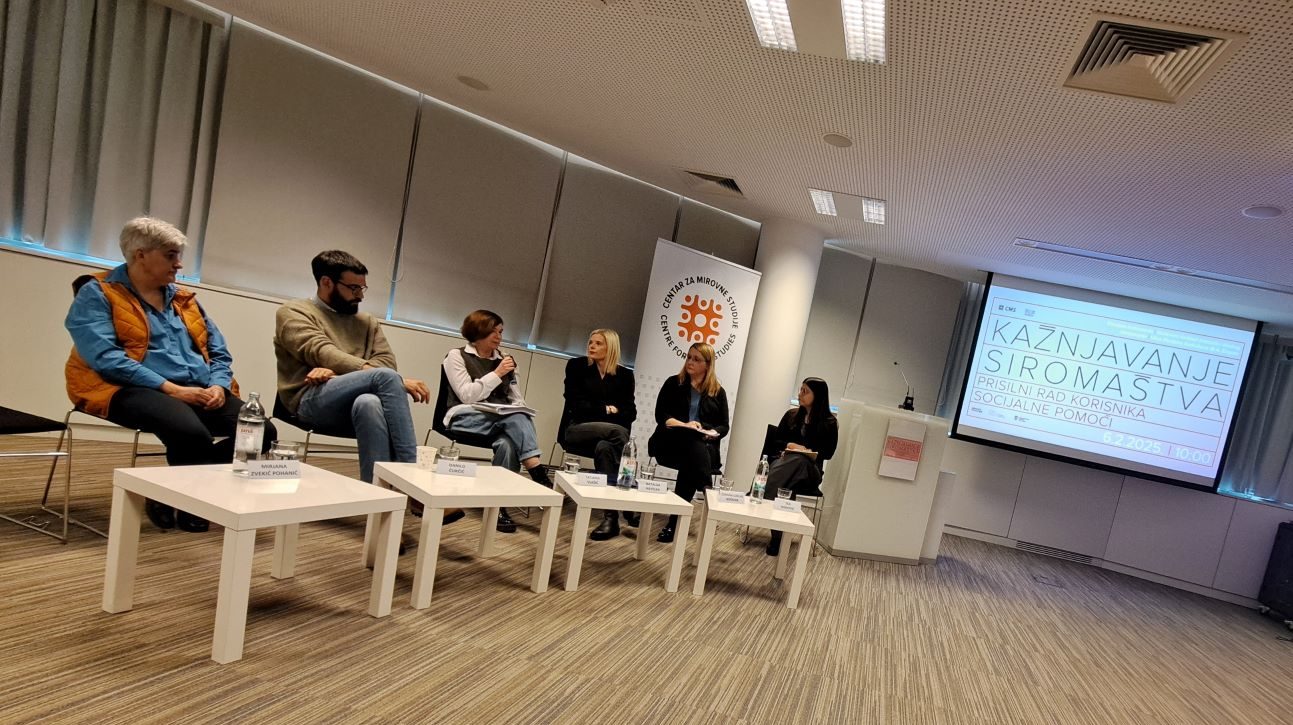Deputy Ombudswoman Tatjana Vlašić participated in the conference “Punishing Poverty: Forced Labor of Social Welfare Beneficiaries” on February 6, 2025, in Zagreb. The conference was organized by the Center for Peace Studies and the Center for Peace, Nonviolence, and Human Rights Osijek as part of the EU project Impact4Values.
The aim was to highlight the negative consequences of mandatory community work on those required to participate—recipients of guaranteed minimum , who are among the most impoverished individuals.
Deputy Vlašić emphasized that the Ombudswoman has received complaints from recipients of the guaranteed minimum benefit and gathered insights through field visits and discussions with regional offices of the Croatian Institute for Social Work, as well as with cities and municipalities. Given these findings, the Ombudswoman plans to propose abolishing this measure via the amendments to the Social Welfare Act currently in the pipelines, as it contradicts the right to work and the right to fair and favorable working conditions guaranteed by the International Covenant on Economic, Social, and Cultural Rights.
This measure constitutes a form of forced unpaid labor since recipients are obligated to respond to calls for community work and lose their benefits if they refuse. However, the guaranteed minimum benefit is far from sufficient to cover the basic living expenses such as utilities, rent, and food. Deputy Vlašić pointed out that this benefit does not ensure housing security or daily meals. Currently, the base amount for its calculation is €160 per month, with the actual amount depending on the recipient’s category.
Complaints have revealed that some citizens lost their benefits because they were unable to show up for community work due to health conditions, yet no exceptions were made for such cases. Additionally, not all cities and municipalities implement this measure, leading to inconsistencies—some citizens are repeatedly called upon, while others are never called, without any clear criteria. This results in an unequal application of the law across Croatia.
Other panelists also discussed the negative effects of this measure on the poorest citizens. Social worker Mirjana Zvekić Pohanić from Zagreb shared cases from her practice, while Natalija Havelka from the Center for Peace, Nonviolence, and Human Rights Osijek spoke about providing free legal aid to people in extreme poverty. Zorana Uzelac Bošnjak from the City of Zagreb’s Office for Social Protection, Health, Veterans, and Persons with Disabilities, and Danilo Ćurić from the A11 Initiative, which advocates for the abolishing of this measure in Serbia, also contributed to the discussion.
The negative impact of this measure was further confirmed by an analysis conducted as part of the project, presented by Tea Radović from the Center for Peace Studies. The analysis highlighted legal inequality, revealing that at least 68% of the local government units do not implement this measure. Meanwhile, in those that do, 91 individuals lost their guaranteed minimum benefit over a period of 18 months for failing to respond to a call to perform community work.





